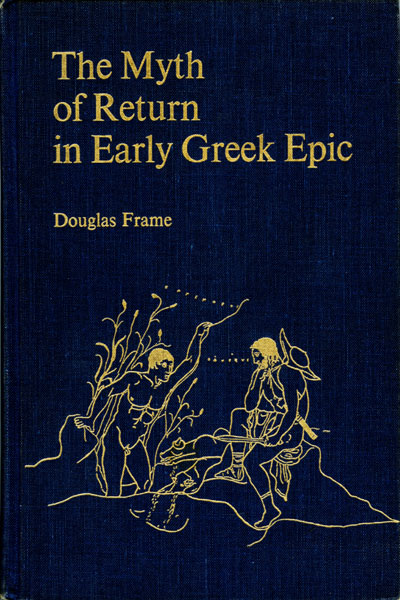The Myth of Return in Early Greek Epic
“The main argument of this book is that the connection suggested by Homer between the ‘wiles’ and the ‘wanderings’ of Odysseus in fact rested upon an earlier tradition both significant and deep. The origin of this tradition has to do with the etymology of the Greek word nóos, ‘mind’, which I propose to connect with the Greek verb néomai, ‘return…
“The main argument of this book is that the connection suggested by Homer between the ‘wiles’ and the ‘wanderings’ of Odysseus in fact rested upon an earlier tradition both significant and deep. The origin of this tradition has to do with the etymology of the Greek word nóos, ‘mind’, which I propose to connect with the Greek verb néomai, ‘return home’. Such an effort requires that nóos be reconstructed as nos-os, a derivative from the verbal root nes– . The significance of this proposal for the tradition underlying the Odyssey is clear. It implies that the connection still felt by Homer between the ‘wiliness’ and the ‘wandering’ of Odysseus goes back to a fundamental connection between ‘mind’ and ‘returning home’, and that the relation between what Odysseus ‘is’ and what he ‘does’ has a solid basis in the history of the Greek language.” —from the Introduction
Originally published in 1978 by Yale University Press.
Use the following persistent identifier: http://nrs.harvard.edu/urn-3:hul.ebook:CHS_Frame.The_Myth_of_Return_in_Early_Greek_Epic.1978.
Copyright, Douglas Frame. Published here by permission of the author.

